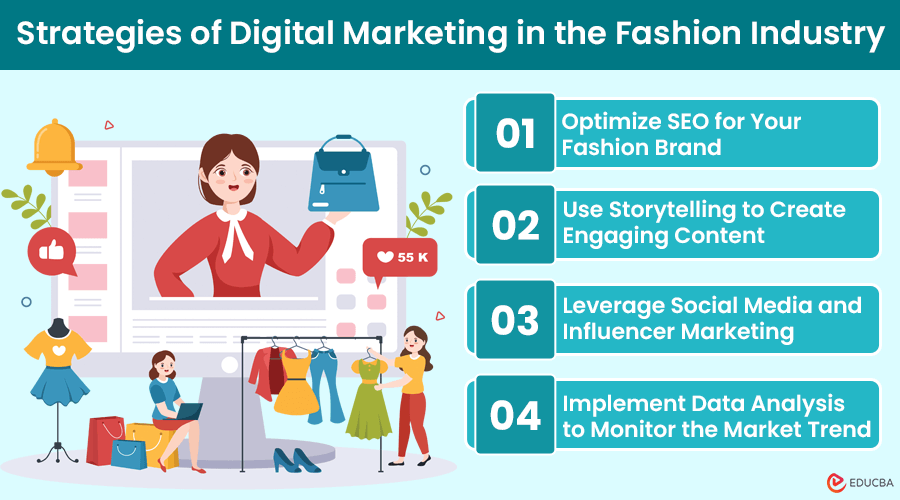
The Revolution of Digital Marketing in Fashion
Digital marketing in fashion is important as it helps fashion brands reach relevant audiences, build brand awareness, and increase sales. And with the rise of social media platforms and e-commerce websites, fashion brands can showcase their products to a global audience within seconds.
Moreover, fashion brands are creatively using digital marketing to connect with modern consumers. The focus is no longer on creating appealing designs but also on how these designs actively present the world.
Digital marketing offers various strategies, including social media marketing, search engine optimization, email marketing, and working with influencers to promote brands. These methods allow them to establish a strong online presence and meaningful customer connections. For instance, exploring techwear through a brand like www.cybertechwear.com showcases how niche fashion markets leverage digital platforms to enhance their visibility and appeal to a specific demographic.
Moreover, digital marketing allows fashion brands to analyze customer behavior and preferences, which can help them improve their marketing efforts and product offerings.
Strategies of Digital Marketing in the Fashion Industry
1. Optimize SEO for Your Fashion Brand
In the fashion industry, SEO is an essential aspect of digital marketing. It involves optimizing online content to ensure fashion brands can effectively reach their target audience. SEO helps fashion brands boost their online visibility and attract more visitors by using keywords, meta tags, and great fashion-related content. It’s vital in a competitive market helping brands increase their online presence and boost sales.
Due to the industry’s highly competitive nature, SEO can be particularly challenging for fashion brands. However, by focusing on long-tail keywords and local SEO practices, brands can carve out niches for themselves. Moreover, optimizing for voice search and mobile can significantly enhance a brand’s reach, considering the growing number of users who shop and explore fashion on their mobile devices.
2. Use Storytelling to Create Engaging Content
Content marketing in the fashion industry is all about storytelling. Whether through blogs, videos, or podcasts, fashion brands use content to convey their brand’s story, values, and aesthetics. This content helps in SEO and engages customers deeply, encouraging them to invest in the brand.
One of the effective strategies is to create content that provides value beyond just promoting products. For example, fashion brands may create video content that goes behind the scenes of their manufacturing process, showcasing their commitment to ethical production methods. They may use documentary-style videos highlighting the stories of the artisans and workers involved in making their clothing, promoting a deeper connection between the audience and the brand.
3. Leverage Social Media and Influencer Marketing
Social media is a powerhouse tool for fashion brands, offering a direct line to interact with consumers. Platforms like Instagram, Pinterest, and Facebook allow brands to showcase their products visually appealingly, while Twitter and LinkedIn can be used for customer service and business networking purposes.
Influencer marketing is another key aspect of social media for fashion brands. By partnering with popular fashion influencers, brands can reach a wider audience and build credibility more quickly.
4. Implement Data Analysis to Monitor the Market Trend
Analytics have become an integral part of modern digital marketing strategies, helping businesses to make decisions based on data. Fashion brands rely on data analysis to understand consumer behavior, track engagement metrics, and refine their marketing campaigns for optimal results.
Brands can leverage tools like Google Analytics, social media insights, and customer relationship management systems to extract valuable data to help them make informed decisions about product lines, marketing plans, and customer engagement techniques.
Future of Digital Marketing in Fashion
In the coming years, we can expect technology to revolutionize how fashion brands market their products.
The beginning of augmented reality (AR), virtual reality (VR), and artificial intelligence (AI) will enable brands to provide more personalized and immersive shopping experiences, potentially enhancing customer satisfaction and loyalty.
However, it’s important to note that consumers increasingly value sustainability and ethical practices. Therefore, fashion brands must promote these values in their digital marketing strategies and demonstrate their commitment.
The shift towards responsible fashion is not just a trend but a necessity that will shape the marketing strategies of forward-thinking brands.
Final Thoughts
The combination of fashion and digital marketing is an exciting new area. Cyber Techwear is a good example of how a well-planned online presence can convey a brand’s individuality and beliefs, engaging customers worldwide. Going forward, digital marketing in fashion will continue to be crucial in the fashion industry’s development.
Recommended Articles
We hope you found the article ‘Digital Marketing in Fashion’ interesting. For more articles on digital marketing, check out the following recommendations.

